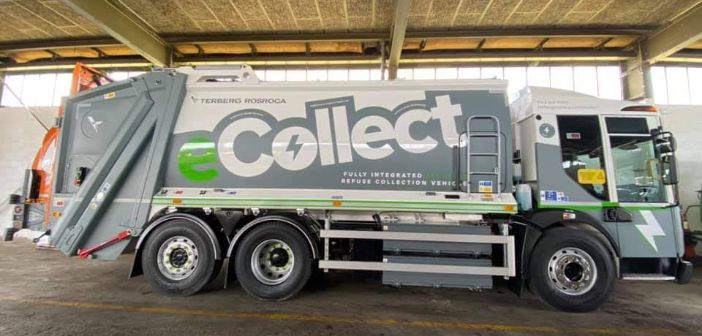ODS, Oxford City Council’s wholly owned company, is to trial an all-electric refuse collection vehicle, as part of the city’s ambition to become zero-carbon and reduce air pollution to the lowest possible levels.
The trial, taking place this month, will allow ODS to assess the vehicle’s performance and suitability to Oxford’s streets ahead of the first delivery of an electric heavy goods vehicle later this year. During the trial, the vehicle will be used for both residential and commercial waste collection services across the city, including commercial waste collection from Oxford Brookes University.
Maria Warner, waste and recycling services manager at ODS, said: “We’re really excited to be testing the new all-electric refuse collection vehicle this month. This is a very significant investment for us and a major step forward for Oxford. Carbon dioxide is a green house gas, so clearly it’s important we end this as soon as possible, but diesel engines also produce nitrogen oxide, which is harmful to human health. That’s why we want to start doing the right thing now – imagine when all the vehicles in the city, not just ours, are electric, what a difference this will make to air, not to mention noise pollution.”
ODS is aiming to electrify 25% of its fleet of 339 vehicles by 2023. Currently there are 27 refuse collection vehicles (RCVs) that cover all the homes and businesses in Oxford. However, when each of these vehicles are replaced with electric it is estimated that there will be almost 750 tonnes less of CO2 produced by Oxford per year.
In total, 34 new EVs will arrive this year including cars, a street sweeper, an excavator, a mix of different sized vans and a RCV. In line with the introduction of the EVs, ODS have worked with innogy eMobility to install a charge point infrastructure across four of its depots to support the transition to a zero-carbon fleet. The transition is in preparation for the proposed Zero Emission Zone, which aims to restrict polluting vehicles and tackle Oxford’s toxic air pollution.
Funding for the trial and the delivery of new EVs comes from Energy Superhub Oxford (ESO) – a £41m project designed to integrate and decarbonise energy, heat and transport systems across the city. The ESO consortium includes Oxford City Council, Pivot Power, Habitat Energy, Invinity Energy Systems, Kensa Contracting and the University of Oxford.
The project, which was announced in April 2019, received £10m from the UK government’s Prospering from the Energy Revolution Challenge – of which Oxford City Council was awarded £1,615,169 for its role in the project. Last week the project saw the installation of the city’s first 50kW rapid electric charger for ODS’s EV fleet at the ODS depot in Marsh road in Cowley. ODS has this year taken delivery of nine EVs as part of the ESO project.





